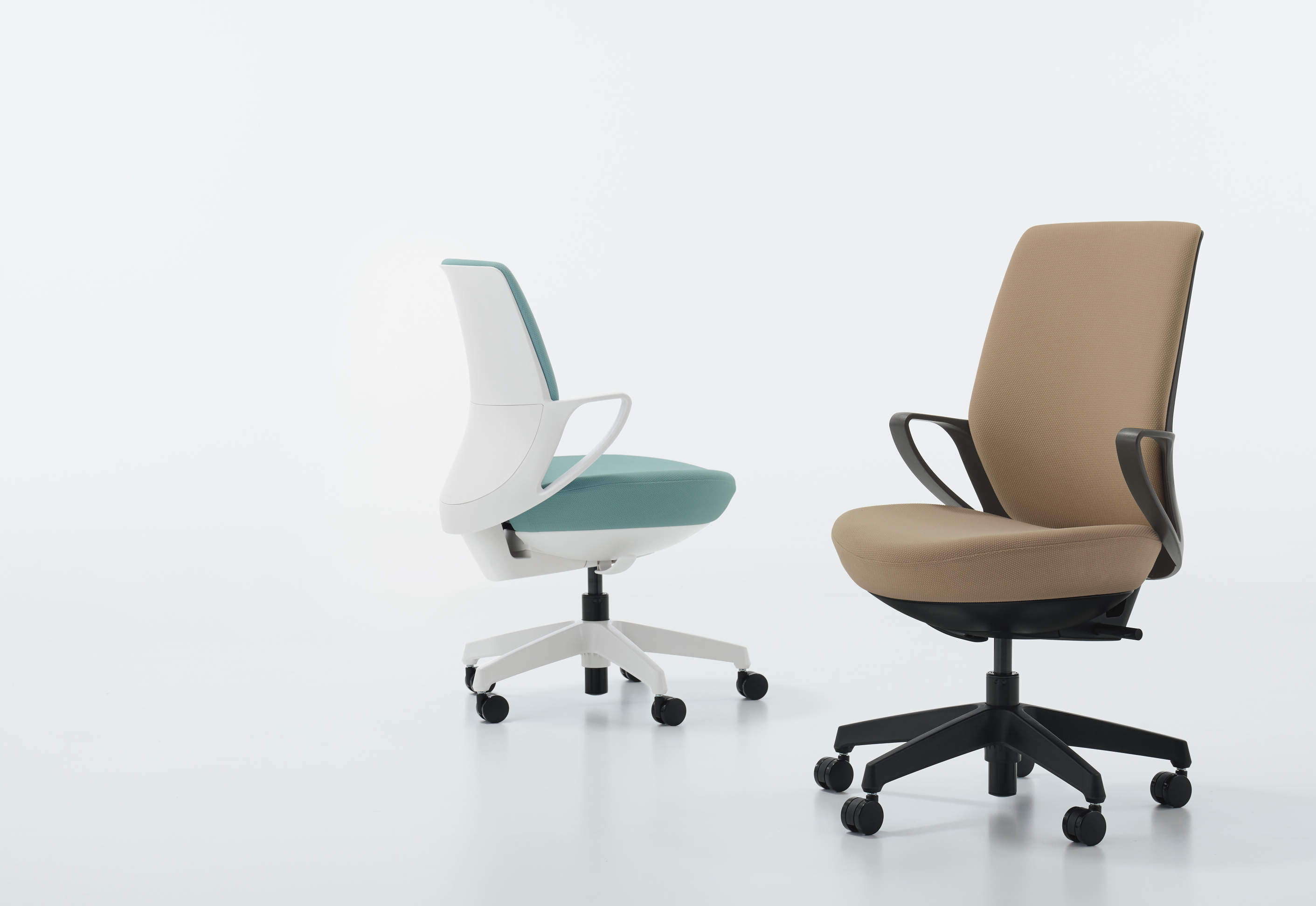GOVERNANCE
FOREST-TYPE MANAGEMENT
Over the years, we’ve offered solutions for new ways of working, learning, and living through a process of first-hand experimentation in which we design experiences for customers through products and services. Amid the plethora of socioenvironmental issues, we want to transform management systems and lead the way to a sustainable future with the support of all employees and businesses. As more partners and customers engage with us, the circle of empathy will expand, sparking more innovation and solving more socioeconomic issues.
Material issues and performance
See Goals and Results: Strategic Theme 2
Strategy to achieve goal
By 2030, we aim to have all of our new and existing businesses contributing to the solution of socioeconomic issues. To that end, the fourth medium-term plan commits us to raising the number of visionary idea (Mirai Yokoku) experiments we produce in an effort to create businesses with positive socioenvironmental impacts. In line with this goal, we will commit resources in a sustained manner toward new experiments and entrepreneurship that will resonate with an increasing number of stakeholders and lead the way in tackling socioeconomic issues. We will disseminate a logic model to give a clearer idea of how employees create, in their jobs, social value as well as economic value.
Over the three years of the fourth medium-term plan, we will take actions to achieve the following two goals: to produce 30 Mirai Yokoku experiments and to have 100% of employees creating positive social impacts through their job.
In 2024, we took a step into new territory by pre-releasing pandoor, a support service for people working multiple jobs. pandoor matches employees who want opportunities to work outside their usual job with companies that need help with challenging tasks such as developing a new business and formulating and implementing business and function strategies. We will keep rolling out new initiatives. In 2025, for instance, we plan to launch a digital service to support junior-high and high school students and a service to support organizational growth in workplaces.
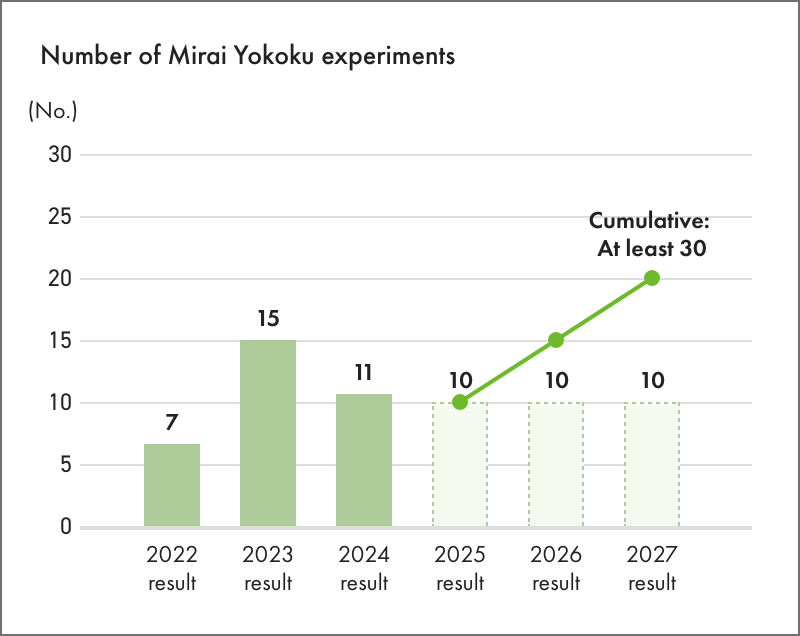
-
*Entities assessed: Domestic consolidated group companies, KOKUYO K Heart Co., Ltd., Heartland Co., Ltd.
Mirai Yokoku experiments
CASE
A Project to Make Buildings Profitable Again (Increasing the Value of Vacant Buildings)
We have defined our role as that of a work and lifestyle company. This means that we now transcend our traditional categories of furniture and stationery and expand the reach of our business fields. The strategy for the furniture business as set out in the fourth medium-term plan, Unite for Growth 2027, is to leverage our strengths to expand the business fields and generate synergies with existing businesses. Part of this strategy involves increasing the value of spaces by applying our expertise in delivering value in furniture, fixtures, equipment, and interior design for offices. Increasing the value of spaces means interior renovation work that incorporates the functions people demand and ensures that the space is commercially viable. An example of increasing the value of spaces is Creative Lounge Mov, a members-only co-working lounge that opened in Shibuya Hikarie in 2012. Another example is The Campus Flats Togoshi. Opened in 2023 in Togoshi, The Campus Flats Togoshi is an apartment building that once served as a company dorm. We renovated the building, converting it into a co-living space.
Building on our track record of spatial design in our existing businesses, we established the Asset-Value-Up Office to meet emerging demand related to spatial assets. For example, we anticipate a growing demand for addressing the problem of vacant office space in small- and medium-sized office buildings. We also expect that the rising cost of constructing office buildings will drive demand for increasing the value of office space in existing office buildings. In March 2025, we took the first step in this new business by acquiring a vacant office building in the Kuramae district of Taito-ku, Tokyo.
We will build our track record in increasing the value of spaces by engaging in real-estate planning for investment, engaging in architectural renovation, and creating a model for managing the property once it enters service. In this way, we will expand the reach of our field into real-estate renovation.
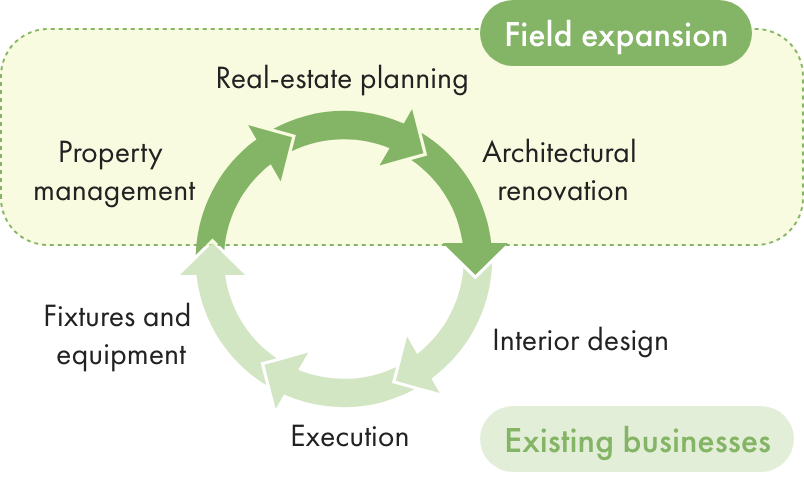
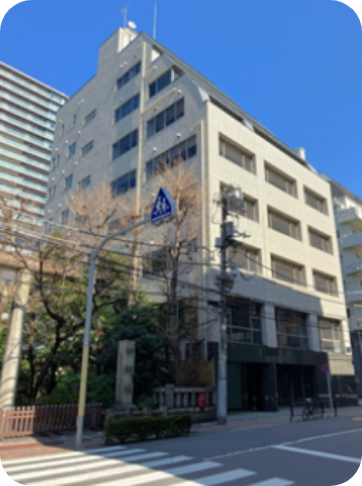
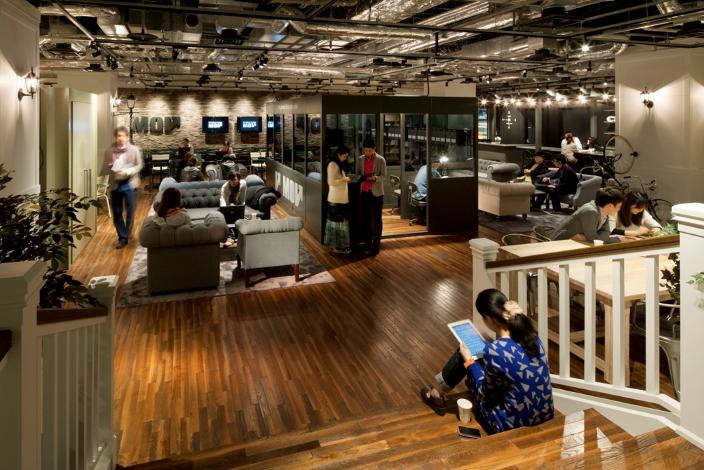
Contributing Toward a Circular Economy: Promoting Use of Sustainable Materials through Loopla for Office Furniture
With growing public interest in the environment and with companies increasingly expected to engage in sustainability, we follow a set of guidelines titled Sutenai Circle, which guides us in recycling resources and contributing to a circular economy. One of our circular-business initiatives is Kaunet’s Loopla service. This service collects used plastic folders from offices and other workplaces and recycles them into new products, without burdening the users. Through Loopla, KOKUYO recycles the used folders into office chairs. In another example of our range of circular-business initiatives, paper offcuts generated during the production of notebooks and other products are reused as material for a line of office chairs called Kamikara. Kamikara fabric is made from 20% paper and provides the durability and other physical properties that office furniture requires.
